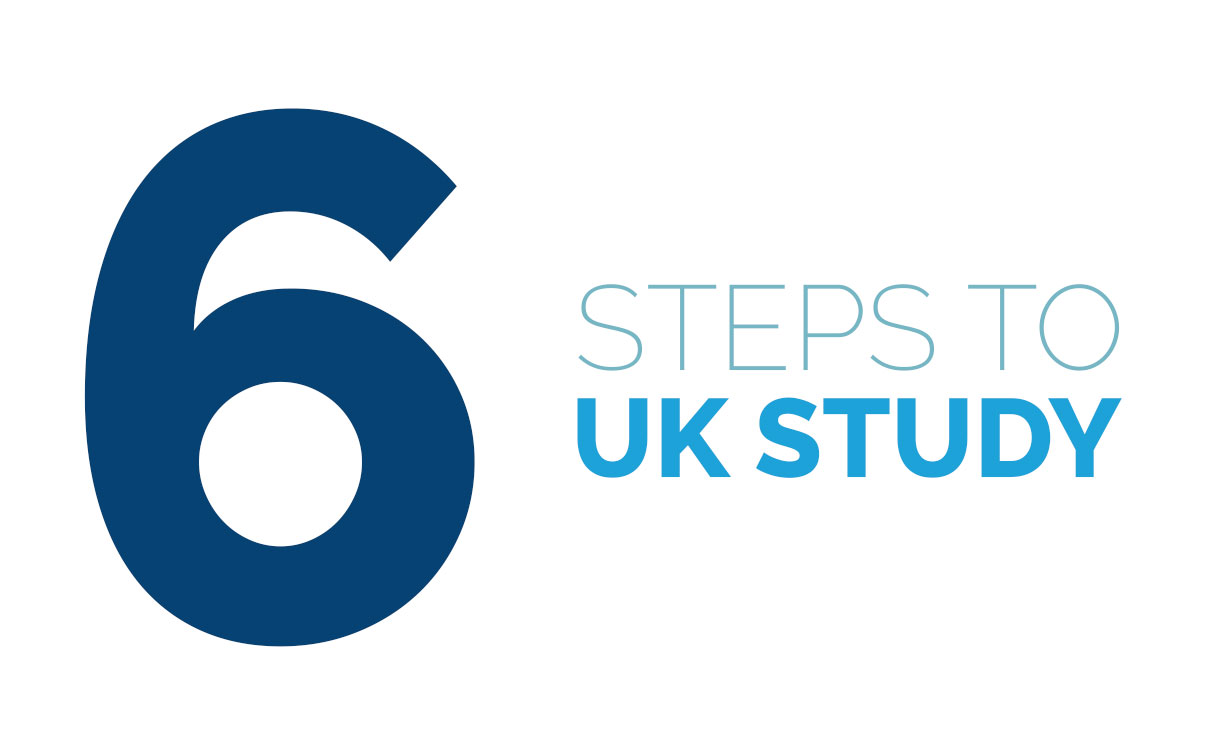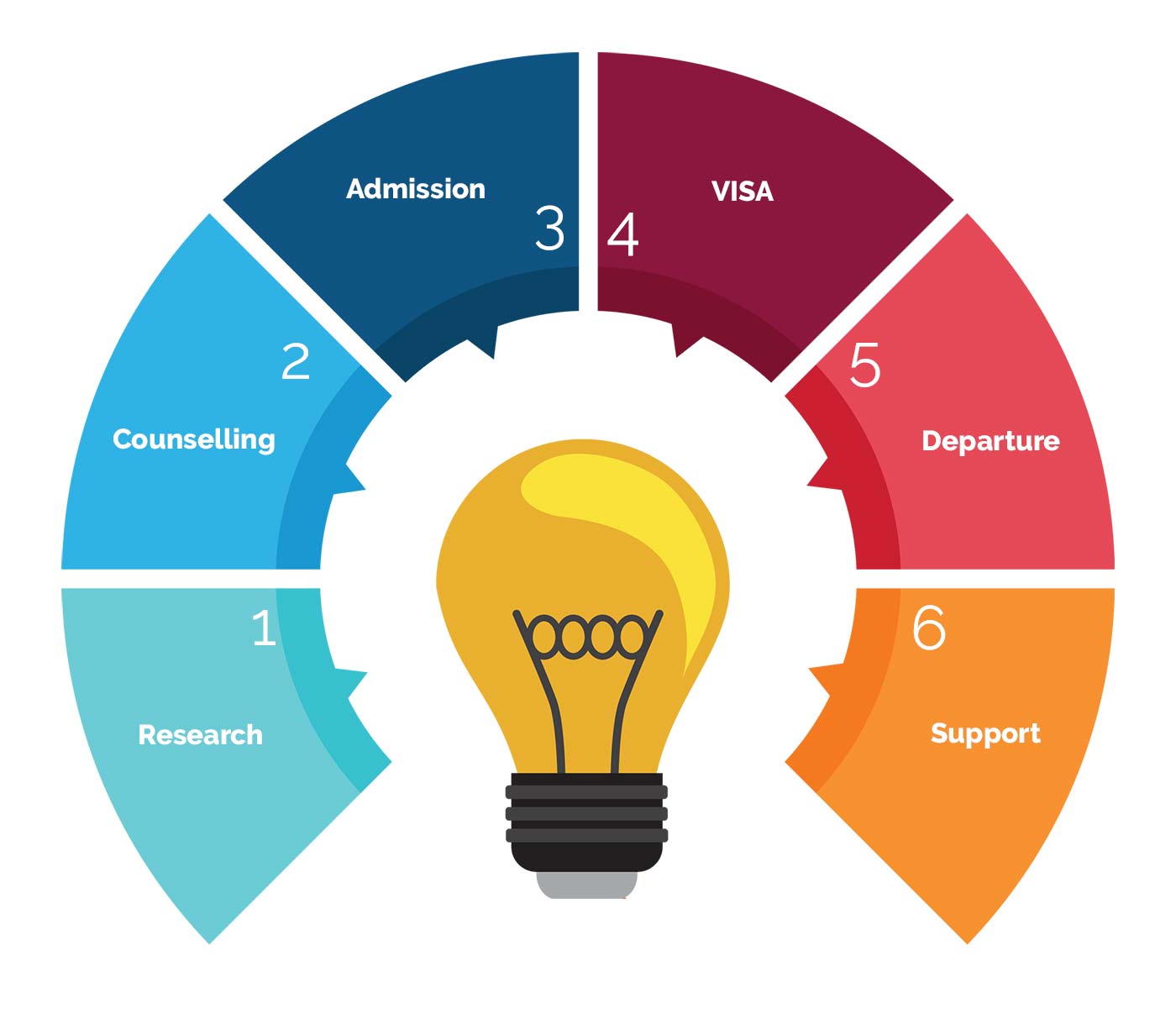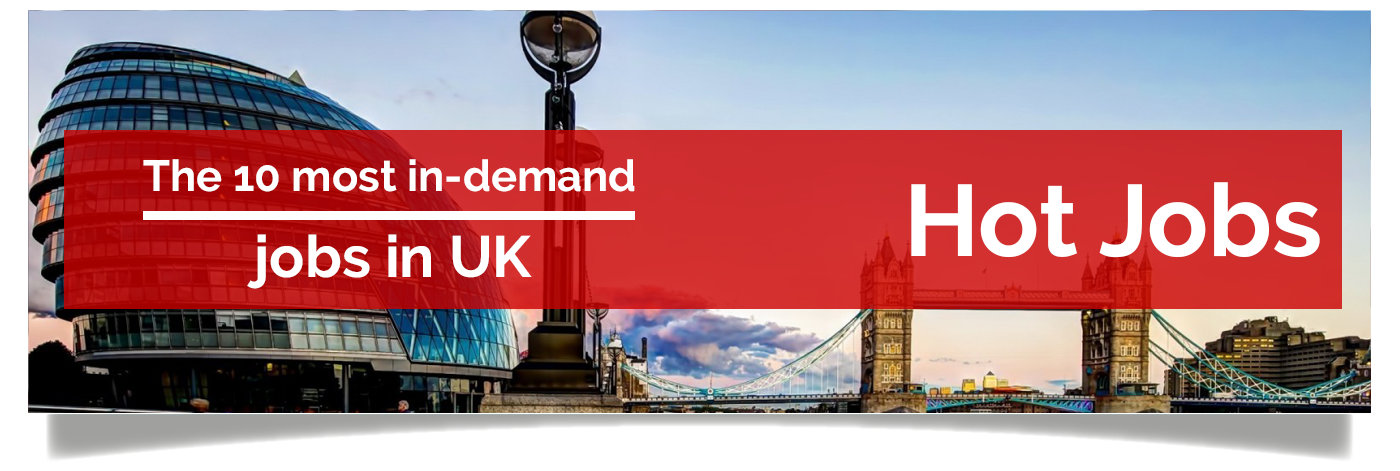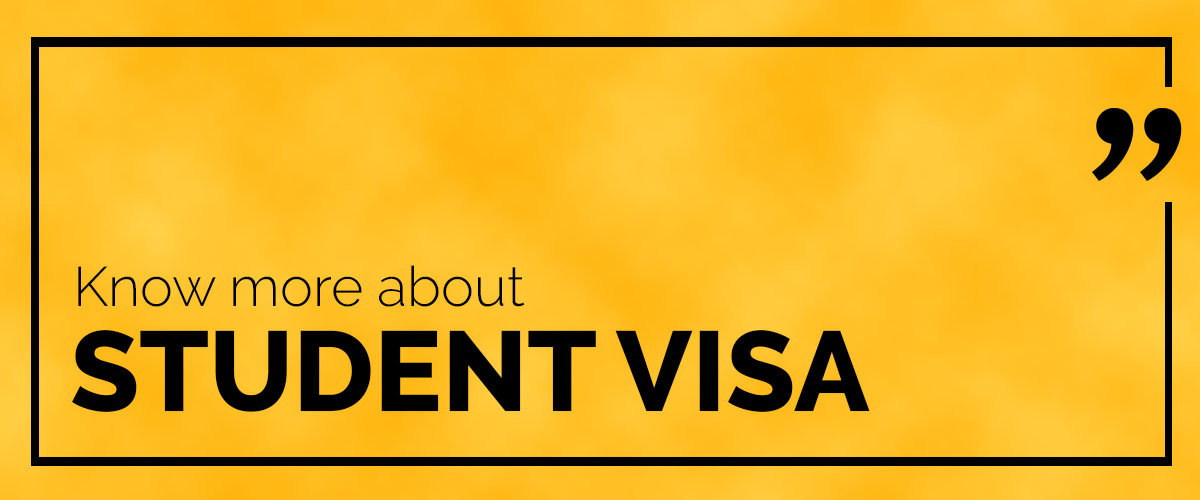

Step 1
Research all your options
Compare career opportunities derived from specific coursesLearn about a variety of universities and colleges to suit your background & finance
Step 2
Meet the GEC counselor
Our education counselors will study and evaluate all the possible study options for you based on your academic background, aspiration, budget, eligibility, work experience, etc.Step 3
Complete your application
Your GEC counselor will help you fill in the required forms; critique the statement of purpose and recommendation letters. Additionally, you will always be briefed with the latest news and information about visa requirements from the official sourcesStep 4
Application for visa
Your GEC counselor will guide you through the required documents for visa and lodge your application with the immigration departmentStep 5
Get ready for your departure
Our pre-departure session includes vital information from immigration compliance to what all you need to study and live in the USStep 6
Ongoing support
You can always get in touch for any sort of guidance after reaching. If you would like to change your course, we are only one call awayThe UK is one of the frontrunners in providing quality education across the globe. The UK is home to more than 400,000 international students for higher and further education each year. Unequivocally, the quality is assured by the UK government so you know you are getting the best support, teaching and resources available. Students have access to the latest facilities due to the UK’s reputation for world-class research. The British education system stimulates students to think critically, participate in debates, explore all new possibilities and come with new ideas. Moreover, the society is purely cosmopolitan and welcoming and international students have all type of support from the communities settled from all parts of the world. The rich culture and heritage are also the factors worth studying in the UK for your career betterment.
Further education
All education after GCSEs is known as further education. Further education courses may be one or two years in length. Most 16-year-olds who enter full-time further education study at one of three types of institutions: the sixth-form college or a college of further education.
You can choose from a wide range of courses and training opportunities in further education. From this stage onwards, most students will specialize in a general direction such as science, arts or humanities, or train for a specific career or industry sector such as health, engineering or tourism. Further education falls into two broad categories: academic and vocational (meaning ‘career-focused’)
Do you want an academic education?
Academic further education in England, Northern Ireland and Wales is covered by AS- and A-levels. These qualifications, which prepare you for higher education, are offered in schools, sixth-form colleges, tutorial colleges and further education colleges. In Scotland, you would study towards Intermediate, Higher and Advanced Higher qualifications.
Looking for a career based education?
Vocational qualification are designed to prepare you either to enter the workplace or to progress to vocational higher education courses, such as BTEC HNDs and Foundation Degrees, and may give access directly to some degree courses.
In England, Northern Ireland and Wales, these qualifications include BTECs, NVQs, CACHE Diplomas and sector-specific qualifications such as those from the Institute of Hospitality.
In England but not the rest of the UK, students aged 14 to 19 can also study for one of the new Diploma courses, which cover industry-sector subjects and are being delivered by consortiums of schools, colleges and employers. These new qualifications have covered 14 employment areas, plus the academic subjects areas of humanities, science and languages. The Diplomas, which are usually two-year courses no matter what level you study at, aim to teach students about an area of work they are interested in through a mix of classroom learning and hands-on experience.
In Scotland, you would study for National Qualifications at Intermediate 2 and Higher level, National Certificates and SVQs.
Considering higher education?
After successfully completing further education qualifications, you might want to progress to higher education. You usually need to be at least 18 (17 in Scotland) to begin a higher education course. Higher education includes academic courses such as Diplomas of Higher Education (Dip HE), undergraduate degrees, and master’s and PhDs at postgraduate level. Vocational higher education is covered by BTEC Higher National Certificates (HNC) and Diploma (HND) and Foundation Degrees, which are offered by higher education colleges and universities and some further education colleges.
A higher education course can last anything from one to four years, and even longer if you choose to stay on as a postgraduate student after completing your undergraduate studies.
Reference: New directions. ‘Your guide to UK undergraduate and pre-university education 2010. Published by British Council




















